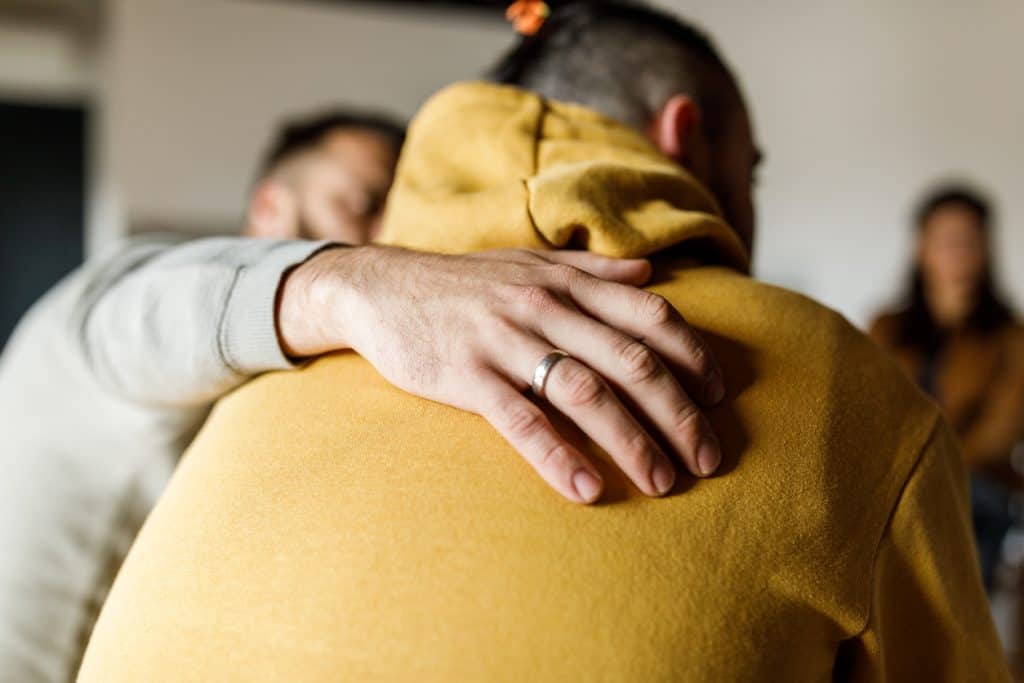In academic studies on pornography, you often encounter the term “scrupulosity.” It’s a technical word related to the idea of “having scruples” about something, but in a neurotic or obsessive way. However, it plays an important part in how psychologists and sociologists understand the effects of porn, particularly on Christians.
So let’s take a look at porn and scrupulosity and why it is that pornography seems to affect different people differently.
What Is “Scrupulosity” About Porn?
It goes without saying that most Christians have scruples about pornography. Scrupulosity is generally considered a kind of obsessive compulsiveness about a person’s religious beliefs. From a Christian perspective, we want to be cautious about this label.
For some, any sense that watching porn is abnormal or wrong would be considered scrupulosity. But the Bible teaches that watching porn is a sin, and so it’s natural and appropriate that we believe it’s wrong. Moreover, there are many non-religious arguments that support the idea that porn is bad. In fact, there are many secular organizations and advocacy groups that recognize the dangers of porn, apart from religious morality.
Nonetheless, the concept of scrupulosity may be helpful for understanding some of the unique ways that pornography can affect those who believe it is wrong but watch it anyway.
How Can Scrupulosity Affect Porn Users?
Despite some widely cited research suggesting that Christians watch more porn, the best data available actually indicate Christians watch less porn than the general population.1 Despite watching less porn than others, Christians who watch porn tend to experience more negative effects than others.
What are these effects?
Scrupulous porn users are likely to consider themselves addicted.
A large percentage of Christians consider themselves addicted to porn. However, research indicates that scruples about porn may make them more likely to view their porn use as an addiction.
Even Christians who view porn only rarely often consider themselves addicted. On the other hand, non-scrupulous porn users are less likely to self-identify as addicted.2
Scrupulous porn users are more likely to feel shame.
People who have scruples about porn and yet watch it anyway tend to feel a deep sense of shame. This should not surprise anyone.
We’ve written previously about the Shame Cycle that keeps many people trapped in porn addiction. Because relationships are crucial for overcoming porn, shame can have a devastating effect on someone’s recovery.
Scrupulous porn users are more likely to experience mental health effects.
We have examined the relationship between porn and anxiety before. One of the key factors in porn causing anxiety is the belief that it’s wrong.
Likewise, there’s a close connection between porn and depression. Research shows that depression, anxiety, and stress are all heightened for scrupulous porn users.3
Is Scrupulosity the Only Reason for Porn Addiction?
At this point, you may wonder if misplaced scruples are the only reason that porn might be considered “bad.” After all, if porn only hurts you if you believe porn is wrong, wouldn’t the easiest solution be to change your beliefs about porn?
However, while scrupulosity is a factor in problems with porn, it is not the only factor, or even necessarily the most significant. New research shows that it’s other problems with porn, not prior religious beliefs, that play a more significant role. As reported by our friends at Fight the New Drug:
Whereas past work… has suggested self-reported feelings of addiction may predominantly be a function of moral scruples or religiousness, our binary analysis suggests that self-identification as an addict is robustly associated with [internet pornography use] itself.
What Should We Do About Scrupulosity?
The underlying problem usually isn’t scrupulosity. Rather, it’s feelings of shame that drive people into hiding and prevent them from getting the help that they need. However, some Christians do struggle with scrupulosity. They fixate on their sins rather than on their savior.
It may surprise some people to know that the Bible teaches us not to fixate on our sins. Colossians 3:1-2:
“So if you have been raised with Christ, seek the things above, where Christ is, seated at the right hand of God. Set your minds on things above, not on earthly things.”
In other words, when you put your faith in Jesus, you confess your sins and then you’re done with them. You don’t wallow in guilt and shame. Yes, we feel sorrow when we do something wrong. But that sorrow turns to joy when we think about Jesus.
Here’s a video with our good friends Matt Fradd and Jason Evert talking about the difference between a tender conscience and a scrupulous obsession over sin.
1The Barna Group, The Porn Phenomenon: The Impact of Pornography in the Digital Age (Ventura, CA: Josh McDowell Ministry, 2016).
2Samuel L. Perry, Addicted to Lust: Pornography in the Lives of Conservative Protestants, (Oxford: Oxford University Press, 2019).
3N. Borgogna, J. Duncan, & R. McDermott, “Is scrupulosity behind the relationship between problematic pornography viewing and depression, anxiety, and stress?,” Sexual Addiction & Compulsivity 25 (2018), 293-318. https://doi.org/10.1080/10720162.2019.1567410).








I would repent after watching porn I would say sorry God for I have sinned please bless my soul etc to keep me away from temptation like music social media tv If I didn’t do that something bad will happen I would reset my phone because of fear of virus l.
Hi Keith, your post on scrupulosity and porn use is fascinating. My son has struggled with religious obsessive compulsive disorder in the past and still struggles with generalized OCD in the present.
Question: do you think that CovenantEyes and it’s unilateral focus on porn and pathologization of porn has ever sparked or triggered scrupulosity in emotionally fragile individuals? You also mentioned the need for decreasing the shame that sometimes comes with porn use. Do you think that past articles of CovenantEyes have ever, directly or indirectly caused people to feel shamed?
Hi Ed, thanks for your comment. The problems we see with shame most often result when people live in secrecy and deception about their porn use, rather than having honest and open discussions with trusted friends or loved ones. That’s why we strongly encourage people to choose accountability, so they can live out their personal values without fear or shame.
Blessings,
Keith